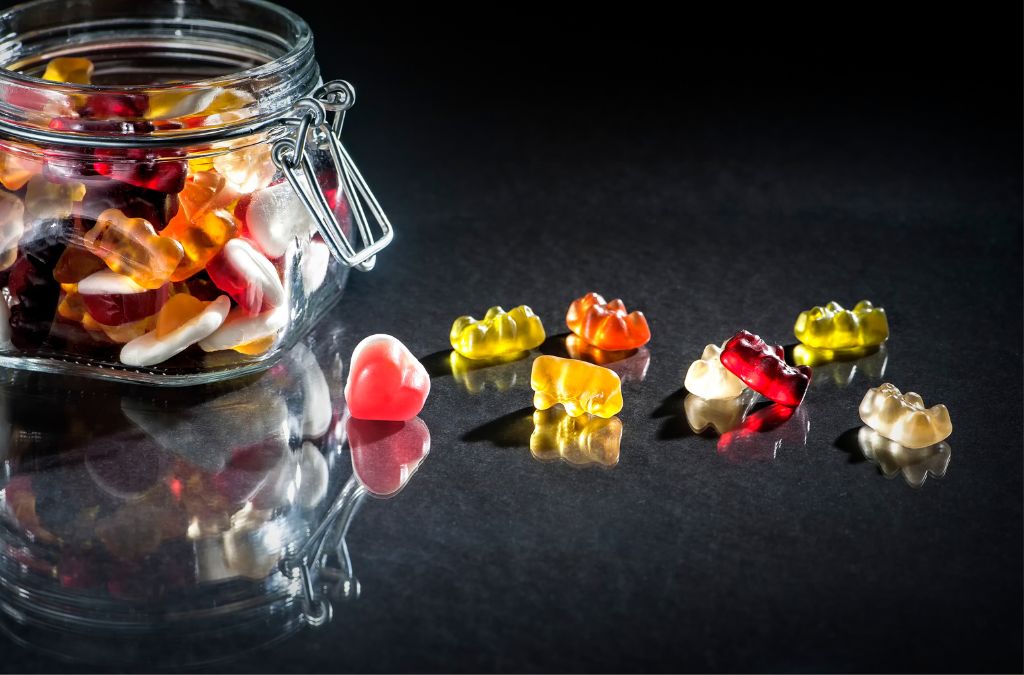Optimizing the Benefits of THCA: Tips and Tricks
Introduction
In current years, the globe of cannabis has broadened much past the standard understanding of THC and CBD. One substance that is acquiring interest for its prospective advantages is THCA (tetrahydrocannabinolic acid). You may be wondering, what is THCA? This fascinating cannabinoid is a non-psychoactive precursor to THC, which means it does not produce the “high” commonly related to marijuana. Rather, several customers are intrigued by its supposed health benefits, including anti-inflammatory homes, neuroprotective impacts, and much more.
As even more individuals become curious about integrating THCA into their wellness routines, it’s essential to understand how to maximize its advantages effectively. In this extensive overview, we will explore various pointers and tricks on exactly how to make one of the most out of THCA– from weed amounts stick understanding its residential properties and advantages to sensible dosing recommendations and usage approaches. So get your favorite drink, sit back, and allow’s study the globe of THCA!
What is THCA?
THCA stands for tetrahydrocannabinolic acid. It is a naturally happening compound found in raw cannabis plants. Unlike THC (tetrahydrocannabinol), THCA does not induce psychoactive results when consumed. When heated or decarboxylated (as in smoking cigarettes or cooking), THCA transforms right into THC and can after that create those euphoric sensations.
How is THCA Different from THC?
While both compounds stem from the very same plant, their results vary dramatically:
-
Psychoactivity:
-
THC: Creates a high.
-
THCA: Non-psychoactive.
-
Therapeutic Advantages:
-
THC: Known for discomfort relief however likewise has potential side effects.
-
THCA: May offer numerous restorative benefits without substantial side effects.
The Chemical Structure of THCA
Understanding the chemical framework can help demystify just how THCA connects with our bodies.
- Atomic composition:
- C21H30O4
- Molecular weight:
- Approximately 358.46 g/mol
This special structure allows it to bind with receptors in our endocannabinoid system in different ways than its psychoactive counterpart.
THCA Flower: What You Need to Know
When people refer to THCA flower, they are usually talking about raw marijuana buds that contain high degrees of THCA. These blossoms are usually unheated or raw, maintaining their non-psychoactive properties.
Choosing Quality THCA Flower
Not all cannabis blossoms are created equal! Below’s what you need to look for when choosing high quality THCA blossom:
How to Make use of THCA Flower?
There are numerous ways to incorporate raw marijuana blossom right into your routine:
- Juicing: Mix fresh leaves or blossoms into smoothie mixes for a nutrient boost.
- Salads: Include raw fallen leaves to salads.
- Tinctures: Create homemade tinctures by steeping raw buds in alcohol or oil.
By making use of these techniques, you can take pleasure in the advantages of THCA without any psychoactive effects.
Health Advantages of THCA
When discussing the prospective positive effects of taking in THCA, numerous customers highlight numerous key benefits:
Anti-inflammatory Properties
One of the standout functions of THCA is its possible duty as an anti-inflammatory representative. Research suggests that it might aid relieve signs connected to inflammation-based problems like joint inflammation or Crohn’s disease.
Neuroprotective Effects
Some studies suggest that THCA might offer neuroprotective advantages– indicating it might help protect mind cells from damages. This is specifically encouraging for conditions such as Alzheimer’s condition or other neurodegenerative disorders.
Appetite Stimulation
Unlike THC, which can result in raised cravings (“the munchies”), preliminary evidence recommends that THCA might help regulate hunger in a more well balanced way– a benefit for those looking to handle their nutritional habits.
THCA Negative effects: What You Ought to Know
Even though many individuals experience favorable results from making use of THCA, it’s critical to be conscious that adverse effects can occur– especially if utilized improperly.
Common Side Effects
Understanding Specific Reactions
Everyone’s body reacts differently because of aspects such as genetics, existing health and wellness problems, and simultaneous medication use. As a result, it’s important to check how you really feel after consuming THCA items closely.
Recommended Dosage of THCA
Determining the best dosage can feel like walking a tightrope– inadequate might yield no impact while way too much might result in unwanted side effects.
General Standards for Dosing
Factors Influencing Dosage
Several variables affect your suitable dosage:
- Individual tolerance levels
- The method of consumption
- Your specific wellness needs
Maximizing the Benefits of THCA: Tips and Tricks
To really optimize your experience with this powerful cannabinoid, take into consideration these handy tips:
1. Trying Out Various Strains
Different marijuana pressures contain varying amounts of cannabinoids– including both THC and CBD alongside THCA– so do not think twice to experiment up until you discover one that works best for you!
2. Integrate Into Your Cooking
If you fit in the kitchen, why not attempt including raw marijuana leaves or flowers into your recipes? By doing this allows you not only to appreciate your meals however also acquire extra therapeutic benefits from the plant itself!
3. Keep Hydrated
Keeping yourself hydrated helps support overall wellness while eating cannabinoids like THC or its precursor kinds such as THCA!
4. Couple with Various Other Cannabinoids
Consider incorporating your use of raw cannabis items including high degrees of both CBD & & THC along with those abundant in Thca– it could just intensify their effectiveness!
FAQs Concerning Maximizing the Advantages of THCA
What makes THCA special contrasted to various other cannabinoids?
THA supplies non-intoxicating qualities while still supplying beneficial properties; unlike many various other cannabinoids that normally create psychoactive experiences upon consumption!
How do I recognize if I’m obtaining sufficient Thca?
Monitoring individual responses after taking in various does will eventually allow people insight into what quantities appear reliable without unfavorable reactions over time!
Are there any medicine interactions I must be cautious about?
It’s always smart first consulting healthcare professionals concerning prospective communications between medications suggested prior to adding any brand-new supplements like thca to routines!
Can I grow my own plants rich in Thca?
Absolutely! With correct treatment & & farming methods focused on preserving important compounds discovered within raw buds during development stages– collecting naturally occurring types ends up being possible in your home too!
Conclusion
In verdict, making the most of the benefits of THCA entails not just recognizing what it is but additionally becoming knowledgeable about its different applications– from picking high quality THC blossom with mindful application strategies all unto checking out culinary possibilities! As study proceeds developing around this appealing cannabinoid realm– the future looks brilliant without a doubt! So whether you’re looking for alternate relief alternatives or simply curious concerning plant-based health practices; offer THA a shot– you may simply be happily amazed by every little thing it has offer!
-
Table of Contents
- THCa Flower Benefits
- Understanding THCa
- Non-Psychoactive Nature
- Health Benefits of THCa
- Anti-Inflammatory Properties
- Neuroprotective Effects
- Anti-Emetic Benefits
- Antioxidant Properties
- Case Studies and Examples
- Case Study: Arthritis Relief
- Example: Neurodegenerative Disease
- How to Use THCa Flower
- Research and Future Directions
- Clinical Trials
- Potential for New Medications
- Conclusion
THCa Flower Benefits
THCa, or tetrahydrocannabinolic acid, is a non-psychoactive cannabinoid found in raw and live cannabis. Unlike THC, THCa does not produce a high, making it an attractive option for those seeking the therapeutic benefits of cannabis without the psychoactive effects. This article explores the various benefits of THCa flower, supported by research, examples, and case studies.
Understanding THCa
THCa is the acidic precursor to THC. When cannabis is heated through smoking, vaping, or cooking, THCa undergoes decarboxylation, converting into THC. In its raw form, THCa offers a range of potential health benefits without the intoxicating effects associated with THC.
Non-Psychoactive Nature
One of the primary advantages of THCa is its non-psychoactive nature. This makes it suitable for individuals who need relief from various conditions but prefer to avoid the high associated with THC. This characteristic is particularly beneficial for patients who need to maintain their daily routines without impairment.
Health Benefits of THCa
Research into THCa is still in its early stages, but preliminary studies and anecdotal evidence suggest several potential health benefits.
Anti-Inflammatory Properties
THCa has shown promise as an anti-inflammatory agent. Inflammation is a common factor in many chronic conditions, including arthritis, Crohn’s disease, and multiple sclerosis. By reducing inflammation, THCa may help alleviate symptoms and improve quality of life for patients with these conditions.
Neuroprotective Effects
Studies indicate that THCa may have neuroprotective properties, which could be beneficial for neurodegenerative diseases such as Alzheimer’s and Parkinson’s. By protecting nerve cells from damage, THCa may help slow the progression of these debilitating conditions.
Anti-Emetic Benefits
THCa has been found to have anti-emetic properties, making it useful for patients undergoing chemotherapy or those suffering from severe nausea and vomiting. This can significantly improve the quality of life for individuals dealing with these challenging symptoms.
Antioxidant Properties
Antioxidants play a crucial role in protecting the body from oxidative stress and free radical damage. THCa has been identified as a potent antioxidant, which may help in preventing various diseases and promoting overall health.
Case Studies and Examples
Several case studies and anecdotal reports highlight the potential benefits of THCa flower.
Case Study: Arthritis Relief
In one case study, a patient with severe arthritis reported significant pain relief and improved mobility after using THCa-rich cannabis. The patient noted that the non-psychoactive nature of THCa allowed them to manage their symptoms without the cognitive impairment associated with THC.
Example: Neurodegenerative Disease
Anecdotal evidence from patients with neurodegenerative diseases suggests that THCa may help in managing symptoms such as tremors, muscle spasms, and cognitive decline. While more research is needed, these reports provide hope for those affected by these conditions.
How to Use THCa Flower
There are several ways to incorporate THCa flower into your wellness routine.
- Raw Consumption: Consuming raw cannabis leaves or flowers in smoothies or salads preserves the THCa content.
- Tinctures: THCa tinctures can be taken sublingually for quick absorption and ease of use.
- Topicals: THCa-infused creams and balms can be applied directly to the skin for localized relief.
Research and Future Directions
While the current research on THCa is promising, more studies are needed to fully understand its potential benefits and mechanisms of action. Ongoing research aims to explore the therapeutic applications of THCa in greater detail, paving the way for new treatments and improved patient outcomes.
Clinical Trials
Several clinical trials are underway to investigate the efficacy of THCa in treating various conditions. These trials will provide valuable data and help establish standardized dosing guidelines for medical use.
Potential for New Medications
As research progresses, there is potential for the development of new medications based on THCa. These medications could offer targeted relief for specific conditions without the psychoactive effects of THC, providing a safer alternative for patients.
Conclusion
THCa flower offers a range of potential health benefits, from anti-inflammatory and neuroprotective effects to anti-emetic and antioxidant properties. While more research is needed to fully understand its therapeutic potential, the current evidence suggests that THCa could be a valuable addition to the wellness routines of many individuals. By exploring various consumption methods and staying informed about ongoing research, patients and healthcare providers can make informed decisions about incorporating THCa into their treatment plans.




